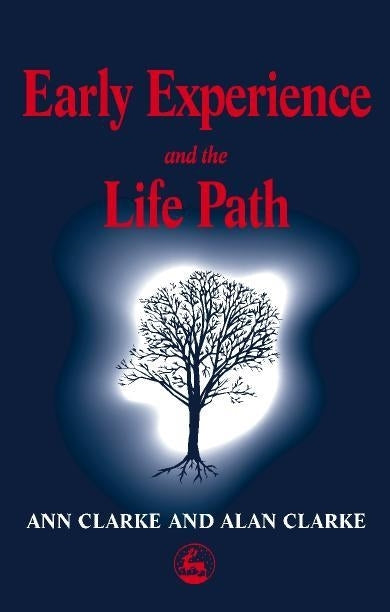
Press Reviews
Educational Psychology in Practice
This is a useful book that can be recommended to practicing psychologists, teachers of psychology and students. It is useful because it reminds us of the importance of paying attention to sound theoretical contexts and research before we plan interventions for individuals or larger groups. It demonstrates how much more sophisticated models of longitudinal research, and hence monitoring our own work, have become. It reformulates the old nature-nurture debate by illustrating the complex interactions between DNA, individual characteristics, psycho-social transactions and significant life changes. Finally, it is a pleasure to read yet more of their work, which presents well thought-out psychology in easily accessible language.
Children and Society
Ann and Alan Clarke's 1976 book on (italic)Early Experience: Myth and Evidence provided a major challenge to the widely held belief that early experiences inevitably had lasting long-term effects. They argued that the empirical research evidence suggested that, to the contrary, there was often substantial (although not necessarily complete) recovery from even very serious deprivation if later experiences were good ones. The present book constitutes a sequel and update, but it is more than that in its provision of an admirably succint and balanced portrayal of some of the key research challenges and some conceptual issues that have to be taken on board. As always, the Clarkes are scrupulously faire in their consideration of the evidence; positive and definite in their conclusions but not polemical; careful to take note of contrary evidence; and practical in their discussion of policy and practice implications. Appropriately, they note that the studies of Romanian adoptess both confirm crucial aspects of their thesis and also suggest the need for some change in developmental concepts, whilst still supporting the main tenets of the views expressed here. Perhaps that will constitute the topic for the Clarkes' next book, but this one is strongly recommended as a thoughtful update on their concepts of resilience.
Journal of Child Psychology and Psychiatry
The themes running through this book are: that early disadvantage does not necessarily condemn a child to a lifetime's disadvantage; that adversity at any age can have harmful effects; that strong positive intervention can reverse the effects of early adversity; and that even without such intervention there are always some children who escape the effects of a bad start. A number of factors are identified which provide protection to the child, such as a sociable and resourceful personality, good innate abilities, a supportive school and peer group; conversely a difficult temperament, chaotic family, and poor emotional development may hinder the child's personal development. It is eminently readable, always engaging, often riveting. In the end, it is immensely heartening. That children could suffer the terrible deprivations described here and emerge triumphantly whole, thanks perhaps to their own qualities and to the devotion of those who subsequently nurtured them, is a tribute to the human spirit and to human goodness.
The Journal of the Royal Society for the Promotion of Health
The text of this book is concise and immensely readable. The issues raised are cross-disciplinary, and have relevance to the fields of educational and social psychology, social care and sociology. Anyone involved with the education and development of children will find this an accessible and illuminating source of information.
Adoption & Fostering
This slim book packs a powerful argument. At it's core, Clarke and Clarke conclude that the weight of scientific evidence demonstrates that human beings recover remarkably well from adverse experiences where there has been well-constructed early intervention to provide more favourable circumstances.
